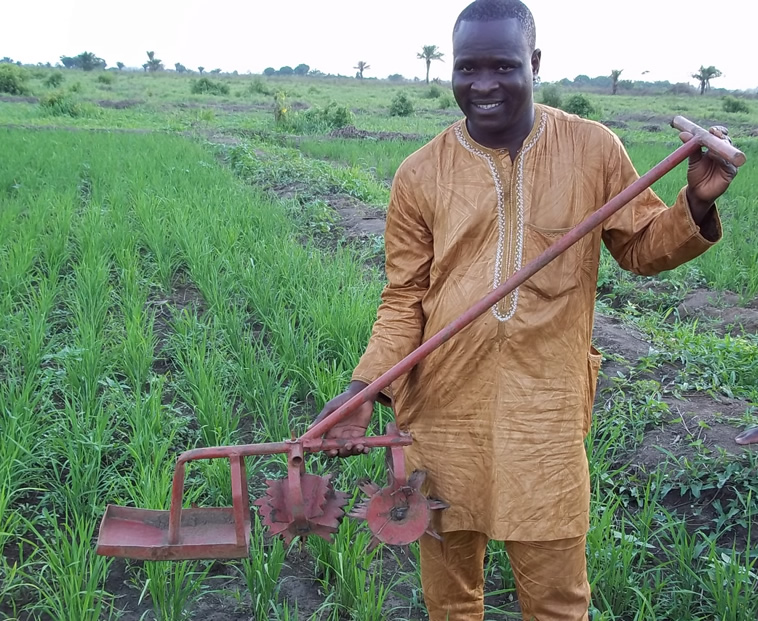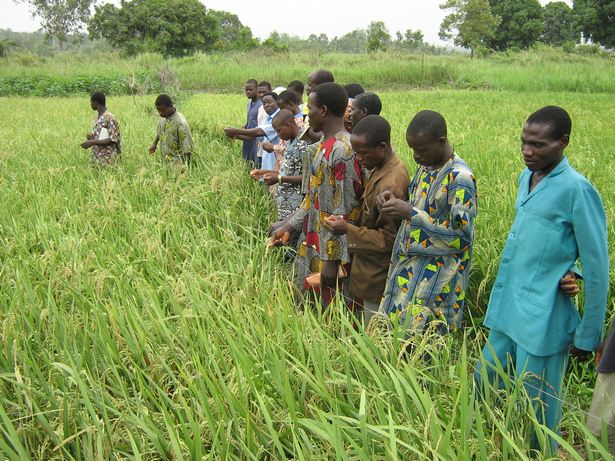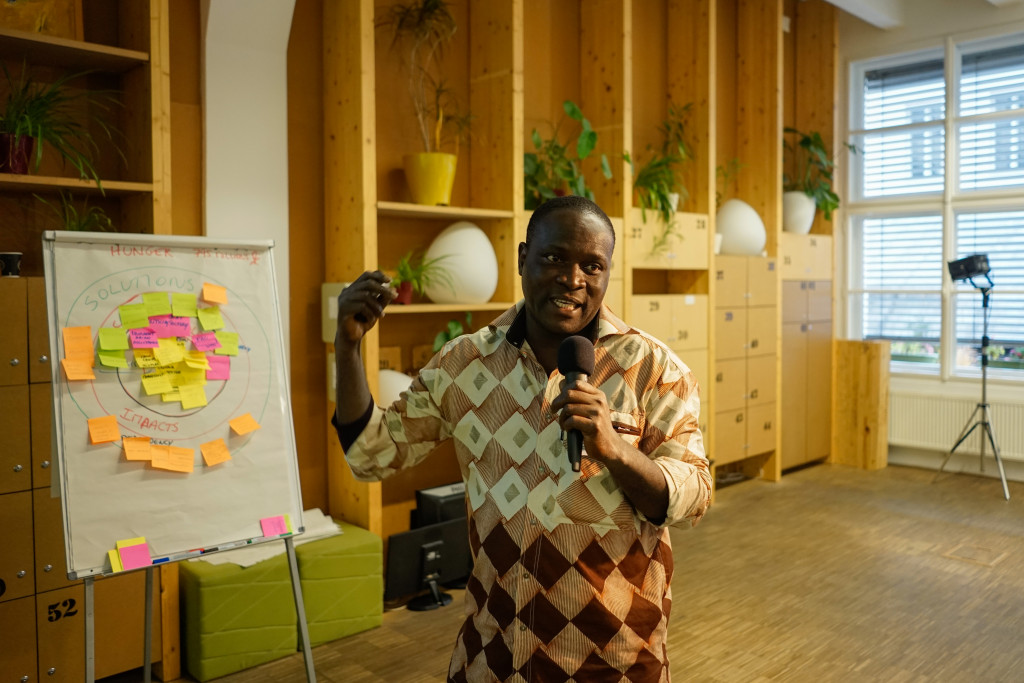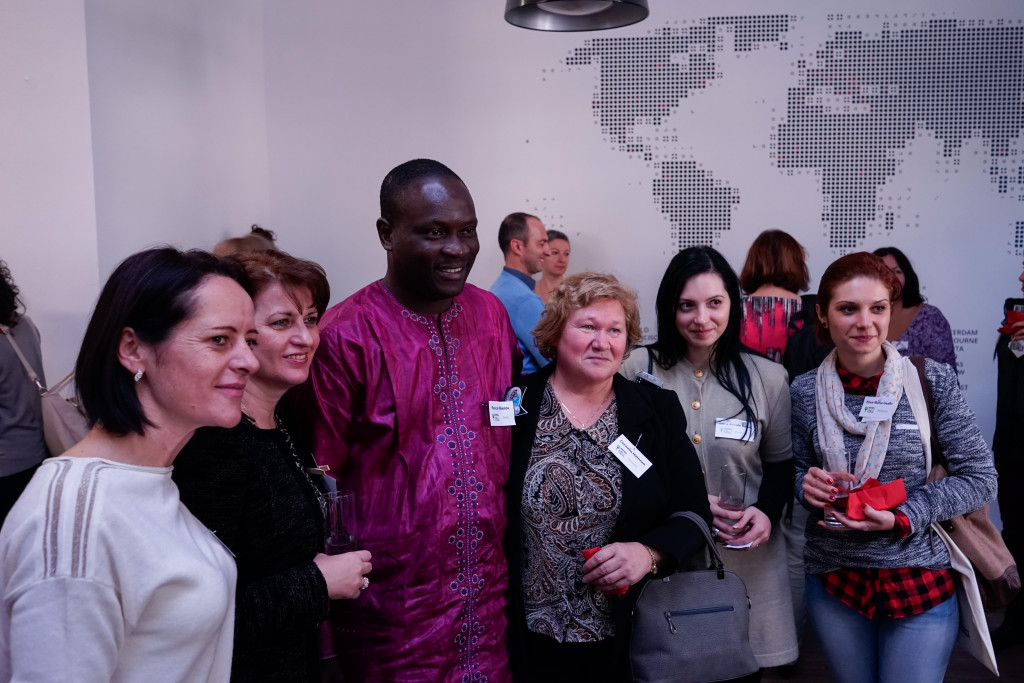Pascal Gbenou is a farmer, educator and activist from Benin. He leads the Regional Organisation for Cooperation among Rice Farmers of West Africa, a union that attempts to negotiate with different rice production stakeholders to make the crop sustainable and profitable. With his colleagues, he has run two agriculture schools for more than 24 years. He also teaches at the local university, Université d’Agriculture de Ketou (UAK) in Adjohoun, Benin, and works in the scientific lab specialised in animal ecology and zoogeography (LaREZ). In October 2016, he was a special guest at the Menu for Change forum in Prague. In his interview for Glopolis, he explained as a direct witness the impact climate change has had on his family farm and his life.
How is climate change impacting your agro-ecological farm and the way you work with agricultural systems and people?
Climate change is impacting our activities. As you know, climate change means that everything is changing. In our country we normally farm by looking at the sky and waiting for the rain. The periods of rain have completely changed. Sometimes the rain is harder, so we have a different situation. As a family farm we try to adapt, and we still work hard to make food available on the table of our consumers.
What do you have to do to adapt to this new situation?
To adapt, we look at different kinds of seeds. We look at different techniques like mulching. We do everything to protect crops. We have different farming strategies to discuss so we can stay in business.

Pascal Gbenou on his agro-ecological farm. (Photo: SRI-RICE)
Could you give me an example of what you discovered?
We discuss how we can produce more and we how can sell at a good price. We discuss how we can face different situations brought about by climate change; we talk about fertility and about all of life.
How many people do you employ?
I employ four people directly at the farm. These are permanent workers. Apart from that, we have several people who want to work occasionally. As you know from me, we have a farm school that gives many young people an opportunity to be trained in agriculture. What is very important in our system is that we recycle everything in our effort to battle climate change. We produce no waste. We raise animals and grow vegetables and between them there is an important interaction. Everything is recycled. So that is another way to face climate change.

Pascal Gbenou’s farm and agriculture school. (Photo: SAIN Benin)
Do you feel encouraged by the current FAO report that says small farms need support?
Yes, we need support. Without support we would not have the farm. If we look at Europe, farmers get lot of help from their government, as is also the case in the US. But in Africa we do not have the same situation. That is very difficult for us. As rice producers, we face unfair competition. As we don’t have the financial support of our government, we need to face competition from the surpluses of other farmers. This can disturb our markets. It is not easy, but we believe in our role to feed the world and we try to do it. We hope they will change their minds and try to do something for us.
What helps? Is it networking of people around agricultural production?
We are already in a network, you know, I will give you one example. From the village up until the West African level, farmers are organised. The problem is not one of networking. Financial support is important. We need to lower taxes. We need a good environment to sell our products. But this isn’t what we have now.

Pascal Gbenou during his lecture at Menu for Change Forum. (Photo: Glopolis)
How did a forum like Menu for Change inspire you? What did you take away from the discussion with the colleagues here?
A forum like that inspires, because you meet people that are almost in the same situation, people from India and even those from Europe who are in a different situation. You feel like you are not alone. It creates an opportunity for networking and for exchanging information. It also creates an opportunity for advocacy, for helping, which is very important. We are interdependent in the globalised situation. If we don’t work together, we will disappear together…

Pascal Gbenou wih Romanian teachers. (Photo: Glopolis)
What is a source of joy in you work? We mentioned a difficult part of you work, but what is a source of hope and joy?
I am very joyful that I can plant something to grow and put it on someone’s plate. I am very joyful we have the responsibility to feed people! We are joyful that we have the responsibility to manage the environment. It depends on us. We work on it. Big companies do what they want. Therefore we work to make food available. That is very important. Even if there is no activity, it is very important that we have agriculture. So we are in a good position. We need to be protected, we need help and we need collaboration to change our whole worsening situation.












